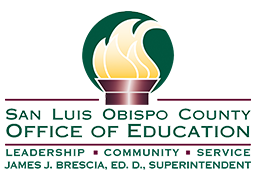Preparing to Return to School
By James J. Brescia, Ed.D.
County Superintendent of Schools
Education is not preparation for life; education is life itself ~John Dewey~
During college days or when school-age children are living in a home, the bulk of the back-to-school shopping occurs in late July or early August. According to research from Experian Marketing Services, there is a trend of waiting to shop until the school year starts, in anticipation of last-minute bargains. Unlike waiting for the last-minute sales and shopping sprees, research indicates that preparing for school is a process that is serious business.
In 1992, the National Education Goals Panel made “readiness to learn” the first of five goals to be achieved by the new millennium. This goal reflects not only concerns from the past but those of the present day. There are still persistent gaps among children from different ethnic and socioeconomic groups, despite investments in intervention programs (Goldenberg, Reese, & Gallimore, 1992; Griffin, Case, & Seigler, in press; Stipek & Ryan, 1997). There is also significant research about the relatively poor achievement of American students, compared to students from other industrialized countries (Stigler, Lee, & Stevenson, 1987; Stevenson, Lee, Chen, & Stigler, 1990). So what can be done to prepare our student for success in school?
There are several strategies suggested for achieving the goal of school readiness (e.g., good nutrition and access to health care) and the expansion of early childhood education. Renewed interest in early childhood education stems in part from highly publicized research showing both the short-term and long-term benefits (Campbell, F., Conti, G., Heckman, J. J., Moon, S. H., Pinto, R., Pungello, E., & Pan, Y. , 2014). Local programs such as the San Luis Obispo County First 5, Head Start, and our State Preschools have been expanded as school districts are increasing access to preschool education programs (U.S. Department of Health and Human Services, 2015).
Even though our legislature and political forces tend to focus mainly on test-related academic achievement, we should consider motivation as a goal (Committee for Economic Development, 1987; Council of Chief State School Officers, 1988), and concerns about motivation are implicit, insofar as motivation affects achievement outcomes (Stipek, 1993, 1996). Families, caregivers, and educators often hold motivational and social goals as important. In a study by Stipek, Milbum, Clements, and Daniels (1992), for example, relatively well-educated parents ranked a positive self-concept as the most important goal of preschool and kindergarten; less well-educated parents ranked this motivational goal as second, after basic skills. There seems to be broad agreement that academic and motivational goals are equally as important for young children. There is less agreement about how to enhance children’s development on both of these dimensions, and about whether programs that emphasize one goal can undermine the other.
The National Association for the Education of Young Children (NAEYC) publishes guidelines for early childhood education. The guidelines are based primarily on Piagetian principles of development (Bredekamp, 1989), and promote a child-centered approach to early childhood education. Educators recommend open-ended opportunities for children to explore concrete materials and to interact with each other. As parents and caregivers, we can take children to venues that promote these types of positive interactions. We are all teachers of the children in our care, and as teachers we serve primarily as resources for children’s self-initiated learning regardless of the schooling level.
Family and caregiver involvement in schooling can be operationalized in a variety of ways (Hill & Taylor, 2004). For young children entering kindergarten, definitions of involvement include activities such as attending school meetings, volunteering in classrooms, serving on committees, and simply participating. Other studies examine the at-home behaviors of family and caregivers that promote school success, such as helping with homework, academic supervision, and communicating about school. Unfortunately, involvement tends to decline as children age (Rimm-Kaufman & Pianta, 2000). Considerable research has demonstrated a link between family or caregiver involvement and school-related outcomes (Connors & Epstein, 1995; Fan & Chen, 2001; Grolnick & Slowiaczek, 1994; Hill, 2001; Hill & Taylor, 2004). Educators support and encourage positive involvement in the educational process at any age and at any time. Even if involvement has been minimal, increased involvement presents positive results. “Education is not the filling of a pail, but the lighting of a fire.” ~William Butler Yeats~
References
Bredekamp, S. (Ed.). (1989). Developmentally appropriate practice in early childhood
programs serving children from birth through age 8. Washington, D.C.: National
Association for the Education of Young Children.
Connors, L. J., & Epstein, J. L. (1995). Parent and school partnerships. In Bornstein M. (Ed.),
Handbook of parenting: Vol. 4. Applied and practical parenting (pp. 437−458). Mahwah,
NJ: Erlbaum.
Gallo, L. C., Smith, T.W., & Ruiz, J. M. (2003).
Goldenberg, C, Reese, L., & Gallimore, R. (1992). Context effects on the use of early literacy
materials in Spanish-speaking children’s homes. American Journal of Education Research, 100.497-536.
Hill, N. E., & Taylor, L. C. (2004). Parental school involvement and children’s academic
achievement: Pragmatics and issues. Current Directions in Psychological Science, 13(4),
161−164.
Rimm-Kaufman, & Pianta, R. C. (2000). An ecological perspective on the transition to
kindergarten: A theoretical framework to guide empirical research. Journal of Applied
Developmental Psychology, 21(5), 491−511.
Stipek, D., Milbum, S., Clements, D., & Daniels, D. (1992). Parents’ beliefs about appropriate education for young children. Journal of Applied Developmental Psychology, 13.293 310.
Contact
- San Luis Obispo County Office of Education
- Office of James J. Brescia, Ed.D.
- 3350 Education Drive
- San Luis Obispo, CA 93405
- Tel: 805-543-7732
- Contact SLOCOE
- Contact Webmaster

